Being Indispensable
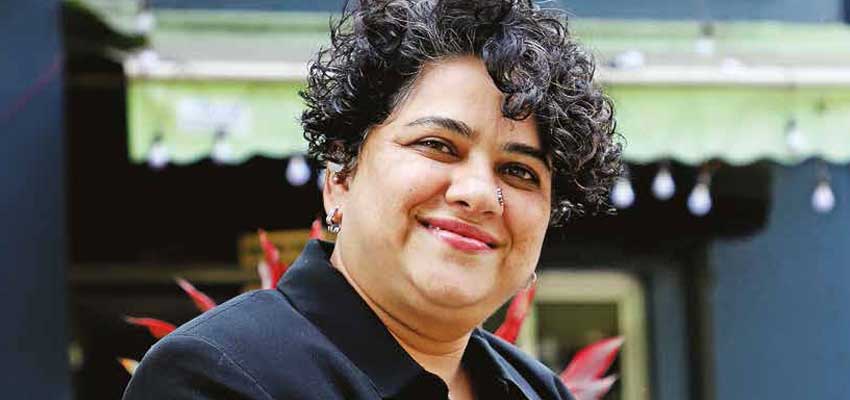
Life showered her with wonderful serendipity to explore many careers. A cricketer, corporate woman, entrepreneur, a beautiful mom, and, most importantly, a humble human being. Being in the Indian Women’s Cricket Team was a dream come true for her, but her dreams just did not end there. She traversed through several pits of the corporate world-Shinsei Bank, IBM, Infosys, and American Express; she has worked with the who’s who of the industry in various capacities. Now, she has started a new chapter in her life, this flourishing businesswoman is out to take the world by storm. Meet Manju Puranik, co-founder, The Lean Life, a fitness centre who lives life queen size.
In a candid conversation with Corporate Citizen, Manju talks about her cricket, corporate, and entrepreneurial journey, shares the best piece of corporate advice she has received, talks about how she lives life to the fullest, and more
"Do you know what passion sounds like? Following something that you genuinely believe in is also termed a true calling. So, even at the age of eight or nine, when I was enrolled in a cricket academy, it felt like I was following my passion"
-Manju Puranik,
Corporate Citizen: Walk us through the defining moment of your growing up days.
Manju Puranik: Although I am from Karnataka, I am brought up in Pune. I completed my schooling at Abhinav Vidyalaya, graduated from Symbiosis College and pursued my MBA in Human Resources from IMERT, Pune. So, as every kid from the late 80s found solace in playing gully cricket, I did so too. Be it day or night, I used to play cricket with friends. It was just the unconditional loving bond that I developed with this sport. And little did I know the way the following events would change my life. So, during one of my cricket escapades, an uncle saw the precision with which a young me played the game. Soon, he asked my parents to enrol me on a girl’s cricket camp. My parents, being a darling, did so. And since then, there was no turning back. I consider this as the moment that shaped my educational and career path. The learnings from the game are precisely why I got good grades or flared well in the corporate world.
My quest for finding my life in this game began in 1989. I had joined the Maharashtra State Cricket Coaching Academy. Within no time, I made it to the sub-junior state team, and later the senior. I was the opening batswoman and a medium pace bowler. My affection for this game grew and I started grasping everything that game had to offer. Meanwhile, courtesy of my persona, I was able to captain the teams at various levels. Leading the U-19 state team was one of the greatest moments for me.
Around the same time, Air India was trying to form their team. They were selecting girls from across the country. Soon, the scouting began and Nutan Gavaskar, Sunil Gavaskar’s sister was heading this process. We had no clue what was going to happen. All we had to do was outperform ourselves to make it to the team. I was the only girl to be selected from Maharashtra. Being the youngest in the Air India team, I had the golden opportunity of thriving on everyone’s experience-this indeed shaped my perception. My performance was consistent, and, in fact, I could see myself growing leaps and bounds. That’s when my stars aligned, and I was picked for the Indian Women’s Cricket Team as a probable. The same year, I was selected for the Indian team, and I made my debut against England in 1997. The pride on my face and the happiness in my heart knew no bounds-that’s the charm of wearing the Indian cap.
Around 1998, unfortunately, I suffered a shin injury and as a result, I couldn’t play for India during the World Cup. I played cricket for almost 11 years where I represented my country and state in various formats. Finally, I hung my boots in 2001.
Playing this game (cricket), managing the teams, and meeting a lot of people during my tenure made me realise that human psychology interested me. I wanted hands-on experience on the same. Picking the human resource segment seemed viable for me
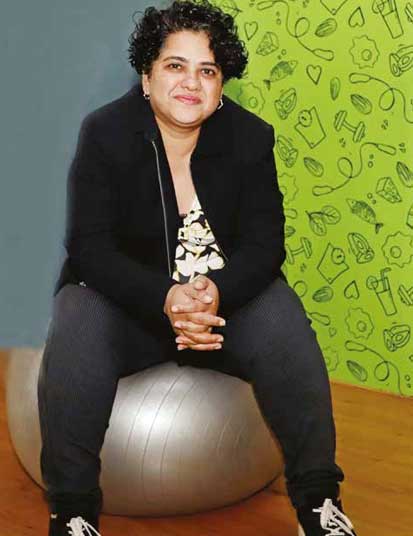
CC: How did cricket change your life?
Do you know what passion sounds like? Following something that you genuinely believe in is also termed a true calling. So, even at the age of eight or nine, when I was enrolled in a cricket academy, it felt like I was following my passion. Around 2001, when I was thinking about hanging my cricket shoes, I had a strong feeling that I should enter the corporate world. And for that, I needed to gain technical know-how. And the right thing was to pursue an MBA course. So, during all this, I followed my heart. And this virtue got a new meaning when I ventured into the game of cricket. What I am today is the courtesy of this sport.
As I entered the world of cricket at a young age, several qualities that one needs to sustain in the corporate realm or life, in general, were inculcated in me. As I led my team in various formats, team building, one of my crucial strengths, started defining me. This game taught me that life will not always be hunky-dorky, there will be difficulties. Sure, I felt heartbroken when we lost a match, but I learned from it and never repeat the mistakes. To perform under pressure one needs ample courage, and I gathered that over time. There are times that even if the ball touches your bat, the ball would go out of the park but when the times are dark, one might struggle to score a single run. Through all this, I learned to stay humble. I never let my wins get to me, nor my losses. The game tests your ego, humbleness, and patience. On the other hand, the game makes sure that your aggression is put to a good use. You ought to be so, as it drives you to perform better. I have learned to give my best even at times when nothing was working in my favour.
I am grateful that I was able to taste success in the sports as well as the corporate world, and I can relate to all the learnings that this game showered over me. Times when I saw people crumble under pressure, I was able to handle the situation with ease.
CC: Ironically, you pursued your MBA in HR but hardly worked in this sector for six months. Tell us more about this...
Playing this game, managing the teams, and meeting a lot of people during my tenure made me realise that human psychology interested me. I wanted hands-on experience on the same. Picking the human resource segment seemed viable for me. Back then, George Judah was quite a rage as an HR facility in Pune. He was the Director of IMERT, Pune. Hence, I opted for that college. The way he taught broadened our horizons. And the practical knowledge that he offered us, made us fall in love with HR. We learned several theories and now was the time to get working in the real world.
Around the same time, I got engaged. Meanwhile, I started working with Infosys in the recruitment department. I agree, I was there barely for six months but the knowledge that I gathered stills stays with me. Within a few days, Maneesh Sitania, my manager, gave me a gist of what HR is about. He taught me how to read a person, decode their body language, and understand their tone, mindset, and attitude. And as per that, we would hire the person. In all fairness, it’s the same as scouting for talent in the cricket world. When you lead a team of players with different temperaments, you kind of get a hang of how to manage a team.
"The whole process of converting this paper-based bank into a digital system was the shining highlight of my stay in Japan. I did not know the mainframe or coding. I used to go home after a tiring day and then focused on learning these things"
CC: You got the golden opportunity to be a part of the success story of Shinsei Bank, Japan. How did that fall through?
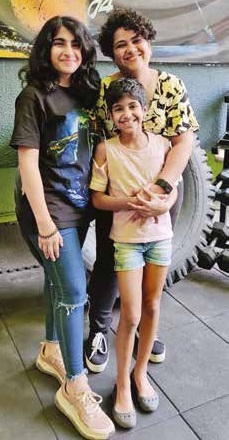
Soon after my marriage, Hemant Puranik, my husband and I shifted to Japan. During one of Hemant’s office parties, I happened to have a general conversation with his manager, which apparently turned into an interview. We spoke about my work experience and expectations. And the next thing I know was, I was offered a job. I was asked to join the Shinsei Bank where I had to manage the insurance portfolio for their Expatriate Employees.
This was in the early 2000s when Japan’s economy was shaky and Shinsei Bank was on the verge of bankruptcy. For others, it was a chance to run away from adversity but I took it as a challenge. This bank was about to be taken over by US venture capitalists, who had investment money to get it out of bankruptcy. They did everything to turn this situation around. They even hired City Bank’s CIOs to handle this task. To manage my folio, I had to begin from ground zero. As I had to handle the insurance portfolio, I began with thorough research. When I put together my work, they were highly impressed with it, so much so, that they moved me to the post of business analyst in the technology department.
Nothing in life lasts forever, even adversity. Within a matter of two years, we were able to turn this bank into a profit-making organisation. Around 20 of us freshers joined this bank at its lowest. All we did was take orders and follow them to the tee. I had to analyse the bank’s backend system. For instance, if someone has to open an account in the bank, the paperwork would reach the roof. Applying for a loan was a tedious process. We had to change the system and eliminate all these redundant processes. Soon, we turned all these processes into a oneclick online procedure. The next step was to start smart bank centres where we handled the ATMs, tech reconciliations, and other things.
This story caught several’s attention. Gillian Tett, a British author and journalist, penned this tale into a book named: 'Saving the Sun: A Wall Street Gamble to Rescue Japan from Its Trillion-Dollar Meltdown'. It answers all the questions - Why has the world’s second-largest economy been unable to save itself? Why has a country, whose financial might in the 1980s was the most feared force on the globe, become the sick man of the world economy? Why has the industrial transformation once called the Japanese Miracle frozen into the Japanese malaise? Amidst all this, I was only proud to take up a job of such stature.
CC: And how did this experience add value to your professional journey?
I lived for three years in Japan on a very tight schedule. While I worked with the Shinsei Bank, I used to take the last train home, such was the intensity of work. But it was a lot of fun, as I was doing what I loved. It was a great learning experience. It was an amazing feeling as well as a humbling moment to attend the meeting with the corporate stalwarts. My job was to attend those meetings, take notes, and implement the process. Back then, the Japanese system was old, and I am happy to be part of the team that transformed them into the American way in three years. It was a dream come true. I poured my heart and soul into the work and the results were commendable. The whole process of converting this paper-based bank into a digital system was the shining highlight of my stay in Japan. I did not know the mainframe or coding. I used to go home after a tiring day and then focused on learning these things. And then the next day, I used to implement that. I learned everything on the go. The whole journey has made me more confident, and self-reliant, and given me the courage to face any work problems.
CC: Over the years, you’ve undertaken several roles and responsibilities. Walk us through that.
Around 2005, I came back to India and joined IBM, Pune, as their Business Analyst for American Express Bank, as I had prior banking experience. I worked with IBM for good three years. The experience sure was great as both the companies had a lot to offer. With them, I also got a chance to go to Phoenix, Arizona. So, when I look back, I was happy knowing that I was handed the opportunity to move across continents and through diverse roles.
I was both humbled and nervous, to handle a role of such gravity in Japan. But as time passed, I was able to handle it with ease. However, the common thing between all the roles I handled, is that I had clarity. With American Express, I started as Business Analyst, soon I was promoted to Project Manager, and later Program Manager, which was almost a director-level position. Hemant and I decided to move to Pune, as we wished to raise our daughter Anushka in our hometown. I was offered the same role with American Express where I worked until 2015.
CC: Tell us about that one challenging project which still got the best out of you.
To be frank, the last three-four years of my corporate career were slightly demanding. When I shifted to Pune, the pressure started increasing. I had to coordinate with the people in Gurugram and New York as well. By the end of the day, I had worked so much that I was sleep-deprived. The role became tricky because the company wanted me to get into a more technical field. I am more of a functional person and taking up the role of the architect wasn’t my cup of tea. The role was more of coding and in-depth technical, which arose the feeling of detachment. And that did not excite me. I had come to a threshold point and did not feel like continuing.
"Never hesitate to help or ask for help. People around you are genuinely nice if ask them to explain the process of which you aren’t a part of this, they surely will. In doing so, you will understand how the organisation works. Show your enthusiasm to understand different processes. You get your patents only when you are a subject matter expert"
CC: What role did your cricket learnings play in your corporate journey, and how did you incorporate them?
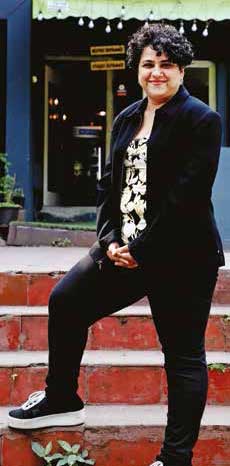
My cricket learnings pretty much define me. Over the years, my cricket career taught me never to panic under pressure, as it takes away your power of critical thinking. Around 2015, when I was working with American Express, we were about to handle a project of a lifetime – American Express was integrating their offers on Facebook called ‘Link, Live, Love’. American Express is a fortune 500 company and one of the oldest companies, so we had to abide by the stringent rules. But it was sure worth it. Facebook was fairly new in the business. They did not have test or production servers, and we had to work with that. Finally, the day came when the project was going live. Our office room was packed with the senior officials, and me being the project manager - I was slightly nervous but super excited. When we went live, the Facebook servers could not handle the load. It sure was a panic situation but I held my nerves.
We called in the architects to coordinate with the Facebook team. The next few hours were crucial. With cricket, I had learned to handle people with different temperaments, and this was precisely why I was could gel up with anyone. I had a cordial relationship with the architects and they were able to handle this situation. The game taught me to have a presence of mind in tough situations. In a do or die game, we need to make the necessary field changes to grab that win. And the game changes within seconds. We changed the field settings, implemented the process, and voila, the integration was a success. It still runs smoothly on Facebook.
CC: What is the best piece of corporate advice that you’ve ever received?
This advice that was given to me by Mr Sathish Muthukrishnan, Director of American Express, has made a huge impact on me. Once during our conversations, he happened to hand out a golden rule to survive in the corporate world. ‘No one is indispensable,’ he said. It kind of took time to understand it, but once when the true meaning hit me, it all made sense. He went on to explain this theory thoroughly. Remember if you are not here tomorrow, you’ll be replaced. Hence, one should take their job seriously and work on themselves so that they become indispensable. Becoming a subject matter expert and a part of the business solution is imperative. This theory touched my heart.
One needs to be a part of the larger picture to make themselves valuable. Never hesitate to help or ask for help. People around you are genuinely nice if ask them to explain the process of which you aren’t a part of this, they surely will. In doing so, you will understand how the organisation works. Show your enthusiasm to understand different processes. You get your patents only when you are a subject matter expert. I knew my job quite well. There were times when the VP called me at odd hours to just reply to a mail because he valued my expertise. Always go a step further, that’s when you can innovate, grow, and become indispensable.
CC: When you have a hectic corporate life, it’s your family’s support that helps you sail through any ups and downs. Do you agree?
Certainly. Without their support, it was almost impossible to scale the corporate summit. Through all this, Hemant and my parents have supported me through thick and thin. Hemant and I, both, are ambitious and we took our work seriously. During our hectic schedule, we both took turns looking after our girls - Anushka and Priyanka. I mean, life is, all about balance. And we both balanced each other out.
CC: You have very well embraced the role of a cricketer and corporate woman. Now, you have worn the cape of an entrepreneur. How did that happen?
Fortunately, I got the chance to play for my country and work with a few of the best organisations in the world. While I was there, I was able to embrace everything they had to offer. Now, I needed a change and to attend to my true calling of entering the food industry. I always had a fascination for food. I loved to cook, but not the usual dishes. While we were in the US, Hemant and I made plans to start something in this field.
Around 2018, I had joined a training class which was headed by Pooja G, who later become my confidant. The vibes that I got from her were genuine. Our friendship thrived, and one fine day Pooja proposed a great idea of converting a part of her studio into a café. It was as if we were destined to do so. At first, the idea to quit a high-paying corporate job to run a business sounded dicey. But after enough contemplation, we went ahead with the plan. We started building the studio, brick by brick. And that’s how The Lean Life was born. Branding the whole thing took time. We poured our heart and soul into it. So, this studio also has a fitness centre that has a personalised fitness solution for all. Currently, we have about 50 loyal members. And the café offers some amazing Keto food which the fitness freaks can never refuse. I wouldn’t say that I was destined to be an entrepreneur, all I am doing is enjoying everything that life has to offer.
Running a business is like raising a baby. We love curating the menu. And hiring the right kind of staff who helps your business grow sure puts a smile on our faces
CC: Continuous learning is the way of life. How are you adding value to your existing knowledge of fitness?
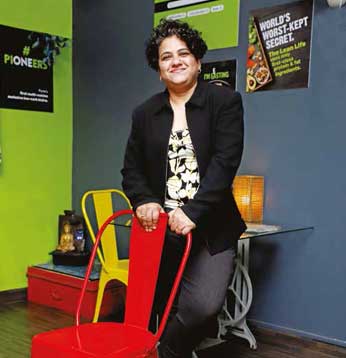
Recently, Pooja and I received our National Academy of Sports Medicine (NASM), an ultimate Personal Training and Fitness Certifications. We started studying during the pandemic. The portion is quite tough, almost equivalent to a medical exam. We studied hard and cracked the exam. When your only aim is to keep growing nothing can stop you.
CC: Takeaways from your entrepreneurial journey?
So far it’s been a fantastic journey. I do not miss corporate life so much because I believe in living in the present. This is a different challenge and it’s quite exciting. Running a business is like raising a baby. We love curating the menu. And hiring the right kind of staff who helps your business grow sure puts a smile on our faces. Pooja and I, do have our differences when the comes to work, but we sort it out and take the right decision for the business. This whole process has made us more independent and shown us the many hues that life has to offer.
CC: You are lucky enough to be a part of three different worlds (sports, corporate, and business). Any word of advice for people from varied background?
When it comes to sports, you have to be consistent and sincere. You just can’t take up a sport and dream to become an overnight success. There will be challenges, people will try to pull you down, but you ought to live through them. Most importantly, learn to respect yourself and others. It’s only when you respect yourself, you’ll understand your value. Believe in yourself and focus on your goal. Youngsters these days just take up on something and give up easily. They need to be enduring and focused.
Talking about the corporate world, one must understand that teamwork is the most important virtue. If you work best in a team you can conquer mountains. You cannot just work for yourself and leave for the day. You have to build a good team, create a better community, and guide the organisation towards its mission. The entrepreneurial journey sure is tough, but the rewards are sweet too. Just remember, it’s a tough mountain to climb towards success, it’s fine to fail, but the only rule is to never give up. Be patient, your time will come. Learn to handle pressure and the rest of the journey sure will be smooth.
CC: Tell us about your other passion or hobbies.
A few years back, I developed a passion for travelling, and I am making sure to explore the world one step at a time. My love for travelling blossomed in 2018. Work had become monotonous, or rather stressful. One fine day, my friends proposed the idea of touring Kyrgyzstan on a bike. Back then, I did not know how to drive a bike. I took that as a challenge brought a Bullet, learnt how to drive, and set off to Mahabaleshwar. Hemant helped me through all this. And within no time, I was ready for the Kyrgyzstan trip. It was something different, and of course, challenging. When you are with nature, all you can do is retrospect, and the feeling was amazing. Recently, Pooja and I visited Russia on a snow drive trip chasing the Northern Lights. We had the time of our lives. Sure the climate was icy, but it did not break our spirits, rather we enjoyed every bit of it.
CC: What’s your philosophy in life?
You only live once - I truly believe in this saying. So much so, that I even got a tattoo of the same. I live as if I only have one life to live. Money will come and go, problems will be there, but do what your heart says. I have always followed my heart since childhood.
Transforming Lives through Agritech
Up close and personal with Ashutosh Sinha, the affable, dynamic and visionary business head of Ergos Business Solutions, an exciting and innovative agritech startup. With well over two decades in the field of agriculture, agribusiness, agritech, rural businesses and entrepreneurship, and exploring the link between corporate profitability and prosperity of stakeholders, rural empowerment and farmer well-being, the Patna-based senior professional cum mentor is in a unique position to advise and guide young corporate hopefuls on the prospects of a career in agriculture, which he argues, has plenty of room for new talent. Not only will it benefit the nation, he says, but will give you immense scope to exploit your talent and potential in a way that will transform the field as well as your own life. And you thought corporate careers exist only in the urban areas?
"I strongly believe that agriculture is the cultural thread of India that absolutely deserves to have its erstwhile glory back. Restore the pride of the farmer, let him know he is appreciated and valued. All of us have a major role to play"
-Ashutosh Sinha
Corporate Citizen: Tell us about your childhood and early days.
Ashutosh Sinha: I grew up in Dhanbad, a small city in Jharkhand (erstwhile Bihar) which is the coal capital of India. I studied there till Standard XII or Inter as it was called then. My father was in government service, I grew up in the government quarters and that was a world in itself. Fellow residents across quarters were like a family. We intermingled and mixed freely. It was a wonderful way to grow up. Always surrounded by people, I attribute my inclination to mingle with people to those early days. That ability to get along with others and be empathetic and social was part of the ethos.
"I had wanted to get into medicine to have a prosperous career but also to give back to society, to serve. But here was a sector like agriculture with as much if not more potential. There was and is so much scope for positive and meaningful intervention"
CC: How did you take up agriculture as a career? Was it something you always wanted to do?
Having grown up in a city, my exposure and understanding of agriculture was nil. We did not have any ancestral land to help me get a grip on agriculture or understand or think about the rural landscape or the impact of farming in any way. I preferred a career in medicine and didn’t even know there was a four-year technical program for agriculture.
While I was preparing for medicine, a friend of mine informed me about another competitive exam for agriculture as an option. I took the exam and incidentally, the results were declared before the medicine entrance exams. Call it serendipity that I didn’t get into medicine that year, but I did get into agriculture. I pursued the fouryear B.Sc. (Ag) programme from Tirhut College of Agriculture in Muzaffarpur, Bihar. This was followed by PG in Plant Breeding and Genetics from the same University, Dr Rajendra Prasad Central Agricultural University, (Formerly RAU) Pusa, Samstipur.
As it happened, I fell in love with agriculture from the beginning of the academic session. We were asked to identify seeds and fertilisers and crops in a small exam to acquaint us with the basics. I had never even seen fertiliser up until then. It was a chance to understand the role of agriculture, its contribution to the economy, its impact and so on. It was an eye-opener.
And while I did get into medicine the following year, my passion was already triggered and focused on agriculture. I understood that it’s as important, if not more important a sector than medicine. I had wanted to get into medicine to have a prosperous career but also to give back to society, to serve. But here was a sector like agriculture with as much if not more potential. There was and is so much scope for positive and meaningful intervention. There was a vast room for growth and the sector was looking for people who could transform it. There was a huge opportunity waiting to be tapped. I realised that this was my passion.
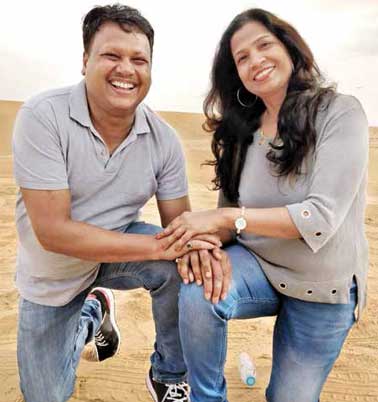
CC: How did you get your first job?
I went for my first interview after completing my MBA from MANAGE, Hyderabad, a premiere and pioneering institution for agri-business management. At that point in time, only IIMs were known to provide quality education in the sector. MANAGE was amongst the first to recognise the gap between educational programmes offered by different institutes and the actual requirement of industry and the need to design a programme to bridge the gap. I joined in the first batch itself. The course was interesting and instructional and designed by all corporate stalwarts like Unilever and ITC among others.
As part of the placement, I was selected by ITC Zeneca; I was happy because my research as a postgraduate student underlined that ITC sold the best quality seeds. After getting the offer, I knew I was headed in the right direction. It was a dream company to work with, from both a research and marketing perspective.
My first posting was in Bhubaneshwar, Odisha in 1998 as a business development manager. This is where I got an opportunity to understand agriculture as a business opportunity for both corporate and farmer. The exposure also allowed me the window to interact with the government very closely. My work profile was to promote sunflower as a new crop in Odisha, a new concept at that time.
The learnings were an eye-opener. I realised that for any business to sustain, ensure traction for a new idea or crop, one had to create an ecosystem of prosperity for each stakeholder across the spectrum. Two years later, I moved to Bengaluru to the head office as a marketing manager. The company was now branded as Advanta India Ltd. It was a prosperous inning of seven years, from joining as a trainee to becoming a product marketing manager, handling the marketing operations of 70 per cent of the crop portfolio.
This dedication paved my way to work with Godrej Agrovet Ltd. (GAVL). The motivation to join GAVL was that Godrej’s structure was called ‘profit centre’. I got into sales and marketing animal feed in Surat. It was an end-to-end operational responsibility for procurement and products. This helped me understand key levers of the business—keeping tabs on sales and costs. I worked for close to three years. I joined as a Manager and left as Deputy General Manager.
The immediate next step was a lifetime opportunity with British Petroleum (BP) which had started a new business for consumers for the first time. Their social business centred around biomass-solid cooking stoves was called “Oorja”. The idea was to do away with traditional regressive solid fuels like coal, wood and cow dung, which apart from being time-consuming, creates a lot of indoor air pollution, and happens to be one of the biggest culprits in killing stay-at-home women in India.
The product was aspirational and solved a huge problem. We were building a stove as close to LPG gas as possible using the latest technology. There was a huge scope to research, innovate and create a market. I was part of a core group, expected to plug the existing gaps, relook at the business and start from scratch, mentored by the best in the industry, including names like CK Prahlad. It was a great team. We created a new business, worked simultaneously with the engineering team and multiple platforms of innovation for product, packaging and developing fuel in new ways.
Along the way, we worked with manufacturers to create new business models including associations with NGOs and microfinance partners to understand the consumers at the grassroots, while working with reputed names like the Indian Institute of Science.
Thus, from building to growing and understanding a business in-depth, from top to bottom - BP really broadened my world view across the spectrum. Due to assorted factors, BP had to exit the business. However, since the business was already created, it was transferred to a new company - First Energy. I anchored it for a brief time period, but it was time for a change.
"We were building a stove as close to LPG gas as possible using the latest technology. There was a huge scope to research, innovate and create a market. I was part of a core group, expected to plug the existing gaps, relook at the business and start from scratch, mentored by the best in the industry, including names like CK Prahlad"

CC: A change, in what sense?
By this time, I was eager to create my own entrepreneurial venture, Villgro Innovations Marketing Pvt Ltd. The Villgro Foundation was already created by Paul Basil; I joined as a co-founder in Chennai in 2009. We were creating a rural distribution chain for agri and dairy inputs and household energy products like solar lanterns, cooker stoves etc. The idea was to match new products with a matching distribution channel to take the new innovations into the market.
It was a successful venture with operational profitability; we raised capital during a couple of rounds. We ran it from 2009 to 2016 in Tamil Nadu and Karnataka. Soon, it was time to exit the business and hand it over to new management. Through Villgro Foundation, though, I had a chance to work with many startups and help them with their business models.
In between my exit from Villgro, I had a chance to mentor quite a few agritech startups develop business incubation centres for ISAP (Indian Society Of Agribusiness Professional) apart from a chance to look into FPOs (Farmer Producer Organizations) and many high impact programmes there. Then for five years, I worked in the domain of farmer engagement, supply chain and sustainability at the leading food company, LT Foods (Daawat Brand of Basmati). I took pride in leading the efforts to launch the world’s first certified sustainable rice brand in Europe for Daawat with the SRP logo. I also worked very closely with govt., industry, research bodies and industry associations in creating a business of Fortified Rice Kernel (FRK) which is a key ingredient in Govt.’s policy of Poshan Abhiyan. I also had a chance to head fertiliser business and develop waste to energy business among others. I joined Ergos in 2021.
CC: How would you encourage urban youngsters to work in the field of agriculture?
Well, ‘nation building’ is the first term that comes to mind. India being a fundamentally agrarian economy, the sky is the limit for those who are passionate about agriculture and wish to explore a career in it. Youngsters have a chance to truly Make in India and Make for India. More than other fields, here’s a golden opportunity to build a fantastic career while making a tremendous impact whilst simultaneously doing good for others.
At an individual level, the growth potential is immense. Farming is just one aspect of agriculture. The sector needs an assortment of talent from various sectors, including communication, engineering, sales, technology, infrastructure, and finance. No matter what stream you come from, there’s plenty of room for you.
CC: What are the challenges and opportunities before the companies engaged in agriculture outreach, marketing and micro-finance?
Well, the greatest challenge, as well as opportunity lies in reaching the smallest farmers. This is a huge challenge as infrastructure and farmlands are small and fragmented. A small farmer in Bihar, for instance, works on an average of three acres of land and may look forward to an output of 6 to 7 tons. This is a small quantity when it comes to transactions. It’s very costly to work with each farmer this way. Companies need volume to grow. Similarly, in order to reach the farmer, one has to work with a number of intermediaries who we would refrain from and work with the farmers directly.
"I realised that for any business to sustain, ensure traction for a new idea or crop, one had to create an ecosystem of prosperity for each stakeholder across the spectrum"
CC: Do tell us about Ergos’ current outreach and its growth prospects ahead.
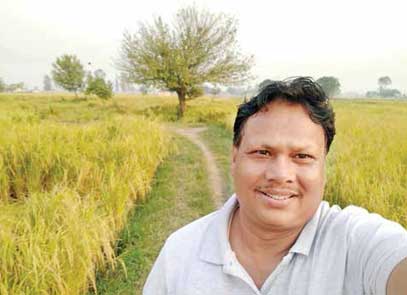
As of today, Ergos is reaching 3,000 villages and connecting with over 100,000 farmers. We have a turnover of INR 150-160 crores and growing about 400% YoY. Both the scope and potential for growth are immense. We wish to reach every village and farmer across the length and breadth of the country.
The measurement metric of our business is unique, it is either grain banks or warehouses. Each grain bank is a cluster of 5-10 villages on an average - and our aim is to add about 3,000 banks in the next three years. This adds up to an ambitious growth target of 30,000 villages in the near future.
But the most important metric is the real impact on each farm household. As we work directly with framers, the impact is also real and direct. When we say that farmer income has increased by 30-40%, it is traceable to their individual bank accounts-not an indirect computation.
CC: That sounds phenomenal! Tell us the secret of Ergos’ connect with the farmers.
Well, there are several factors involved.
Firstly, we have consistently innovated and managed to reach the farmers. Secondly, we maintain absolute transparency in the processes and payments. Thirdly, we have been able to create a smooth and efficient operational model for the supply chain management. We have a network of scientifically managed warehouses where farmers can store even a single bag of grains.
Fourthly, we have managed to provide a financial network for small farmers by enabling loans from partner financial institutions against grains stored with Ergos.
Besides the above, we have been able to attract the right talent who believes in our vision and is passionate about outreach, agriculture, and rural empowerment. Last but not the least, our investment in technology is disproportionate. Name the latest cutting-edge technology and we have it. Everything is driven by technology. Our mobile app is simple and user-friendly and pretty much “do-it-yourself.” It helps the farmer make real-time settlements in a jiffy. We have satellite imagery to track crops; in short, a comprehensive ecosystem that allows the farmer to be in complete control of the transaction.
CC: Stepping away from your career arc a bit, do tell us a bit about your personal life and family.
My wife Priyanka is a cost accountant by profession but currently is pursuing social work, teaching and making a difference. We have two children. My son, Shivam (22), works with Wipro after passing out from VIT Vellore and my daughter Shruti (18), is studying at IIT Kanpur.
CC: How do you like to spend time away from work?
Well, I enjoy quite a few things. For starters, Priyanka has been a national level table tennis player and she ensures I join her a game every now and then. That apart, I am a voracious reader who reads everything I can lay my hands on, from books and papers. Lately, I am re-reading The Ramayana. Books apart, my work entails quite a bit of travel, which I enjoy. I believe that travelling through India by road is surreal. As a family, we go on frequent road trips and thoroughly enjoy this time together.
CC: Lastly, do share your personal philosophy with our readers.
Well, I live by two things. Firstly, I believe one must live and work in such a way that one sleeps well at night knowing one has worked honestly and done one’s best. The righteous and honourable way of life is the finest way to ensure that you have no guilt about your actions.
Secondly, I strongly believe that agriculture is the cultural thread of India that absolutely deserves to have its erstwhile glory back. Restore the pride of the farmer, let him know he is appreciated and valued. All of us have a major role to play.
All about Ergos

What: Ergos possesses a unique model that is making waves across the agri-tech landscape. The startup is building a “Grainbank” that is providing doorstep access to end-to-end post-harvest supply chain solutions to small and marginal farmers, i.e. enabling farmers to convert their grains into tradable digital assets, avail credit against those assets through partner financial institutions and banks, and get better prices for their produce.
Why: Almost 86% of farmers in India are small and marginal farmers who lack the resources as well as knowledge to adequately store their produce, leading to post-harvest grain loss as well as deterioration of grain quality. Ergos’s “Grainbank” model offers farmers the flexibility to store/withdraw a single bag of grains. Uniform grain quality and digitisation of the grains stored makes it fungible and helps aggregate demand & supply. Proper storage eliminates the risk of grain loss arising from improper storage by the farmers. Ergos also facilitates credit and market linkage for the farmers storing their grains with it. Using the credit facility, farmers can avail immediate liquidity; they don’t have to sell their produce during the harvest season when the prices are at the lowest. They can use the Ergos platform to sell their produce during off-season fetching themselves a better income. All of this right at their doorstep.
How: Through efficient use of technology, it ensures direct farmer engagement and collects an extensive amount of data related to the farmers, to offer better quality solutions to all stakeholders.
Where: Currently, they operate in Bihar, Karnataka and Maharashtra with a goal to serve over two million farmers across the country by 2025, and create a sustainable income for them. Over the coming years, Ergos aims to offer the farmers access to best in class services at the farm gate and deliver a significant impact by improving their livelihoods.
The process
Ergos’ on-ground operations are backed by a comprehensive tech platform that assists the end-to-end process and operations, starting from farmer onboarding to the final sale. The end-to-end process of capturing farmers’ data, booking warehousing space, sale of grains or availing credit happens digitally on the Ergos Live platform. Farmers can easily access their digital inventory, check the current offer price and make transactions on them with just one click or call. Farmers can book warehousing space beforehand and approach the Grainbank nearest to the farm, their grains are inspected for quality, and they receive a warehouse receipt specifying details such as weight, grade etc. of their produce. Ergos accepts single quality of grains, i.e. all stored grains are of uniform quality making the stored grains fungible. The fungible nature of stored grains allows Ergos to aggregate supply and deliver the best possible price for the farmers. Moreover, at any given point, the farmer is free to avail credit against his produce or withdraw even a single bag of grains for personal consumption.
New-Age Entrepreneur
"Steering the organisation during the initial phase is always challenging. But the biggest one has been the past two years during the Covid pandemic when most things were uncertain and not only did we overcome the issues but managed to grow exponentially"
-Shrenik Ghodawat
Experienced in senior management roles in consumer products, renewable energy and the aviation industry, Shrenik Ghodawat, Director, Sanjay Ghodawat Group (SGG), has strong business development skills. He is felicitated with the 40 Most Influential Under 40 Indians award by Asia One, Business Leadership Award 2021 and the Young Business Tycoon 2021 award by Times Group, among others. He joined the family business at the age of 19 and brought on board his unique vision, management practices, and global approach across SGG. With his charismatic and dynamic approach, he has managed to lead the group to greater heights of success. Shrenik Ghodawat talks to Corporate Citizen about his vision, practices and approach to making SGG a leading success
-Rajesh Rao
Corporate Citizen: SGG is a family run business-give us a look back on it's history and earlier days.
Shrenik Ghodawat: Sanjay Ghodawat Group (SGG) was founded in 1993 by Mr Sanjay Ghodawat and since then the company has diversified into various high-value industries like Aviation, Education, Consumer Products, Energy, Mining, Realty, Retail, Software and Textiles. SGG is home to more than 10,000 employees, 16,000 students and is driven by its ambition to become the biggest, the best and the most valuable conglomerate. We are on a mission to build enduring relationships with customers, suppliers, employees, associates, channel partners, and peer groups by leveraging the very latest technology to provide high-quality products and services, thereby creating a productive work culture while ensuring the betterment of society and preservation of the environment.
CC: You joined the family business at the age of 19, what were the challenges you faced leading a family-owned business?
Being an entrepreneur is a big challenge in itself. Steering the organisation during the initial phase is always challenging. But the biggest one has been the past two years during the Covid pandemic when most things were uncertain and not only did we overcome the issues but managed to grow exponentially.
CC: While the Covid pandemic was a difficult time for big businesses, how did you at SGG, adapt to the changing environment? What varied diversifications have you made to your business model?
The year 2021 was challenging for everyone as we dealt with multiple lockdowns at the national and state levels. We dealt with a lot of disruption in demand and supply chain. But we overcame all these obstacles and were able to achieve 40% CAGR because of our able team, planning and focus. While obstacles may continue, being adaptive and agile has been our constant mantra to success. This allows us to plan and develop products and services based on consumer needs and requirements.
CC: Lessons that new business ventures can take from family-run businesses?
Have a clear vision of what one wants to do, make a solid plan and strategy, and then set small and long term execution plans which can be measured.
"While obstacles may continue, being adaptive and agile to change to the changing environment has been our constant mantra to success. This allows us to plan and develop products and services based on consumer needs and requirements"
CC: While the last two years witnessed the aviation industry’s worst-ever crisis due to Covid-19, how did Star Air manage to thrive and at the same time, fulfil the common man’s dream of flying?
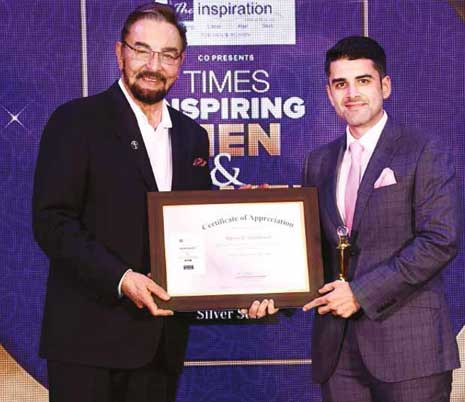 Shrenik Ghodawat being felicitated by actor Kabir Bedi
Shrenik Ghodawat being felicitated by actor Kabir Bedi
Star Air is a customer-focused entity that ensures a seamless and personalised flying experience that blends services at an affordable price. Despite the aviation sector being the worst hit during the pandemic, we continued to endure and push through. As a regional airline, we recognised safety as a core responsibility and motivating factor for our employees and passengers. A hundred per cent vaccination of crew was done by Star Air with intensified sanitisation efforts to maintain the highest safety and hygiene standard on all our flights. We have excelled in accomplishing our goal of fulfilling the common man’s dream of flying by launching pioneering routes on city pairs that were never connected before. During the pandemic, we not only stayed committed to our scheduled flights but also operated a majority of flights, which, in turn, expanded our operations by 120% as compared to our 2019 winter schedule.
In February 2021, Star Air clocked the Highest Passenger Load Factor (PLF) among all Indian airlines at 79.0% followed by registering the second-highest Passenger Load Factor (PLF) thrice in July 2021 with 70.1%, October 2021 with 80.0% and December 2021 with 82.3%. During the pandemic, Star Air aided the Ministry of Health and Family Welfare by regularly airlifting vaccines at zero cost to farflung locations. Currently, we offer scheduled flight services to 15 Indian destinations such as: Ahmedabad, Ajmer (Kishangarh), Bengaluru, Belagavi, Ghaziabad (Hindon), Hubballi, Indore, Jodhpur, Kalaburagi, Mumbai, Nashik, Surat, Tirupati, Jamnagar, and Hyderabad.
CC: RENOM Energy Services established by SGG has recently been awarded the Great Place to Work® Certification 2022. What are the dimensions and key features that the company excelled at?
Being certified as a great place to work is a testament to our fantastic team which has helped us build an amazing work culture at RENOM. This certification celebrates the company’s commitment, work ethic, and philosophy, to deliver quality services through innovative practices. The company has excelled in five dimensions-High-Trust, High-Performance Culture, Credibility, Respect, Fairness, Pride and Camaraderie.
The company continues to foster a culture that values integrity, respect, fairness, and camaraderie while appreciating the team’s collaboration in making the community better for all members. Over the years, RENOM has introduced many initiatives and policies that act as catalysts for the workforce. Some of the key themes in which RENOM excelled to be conferred with the certificate are-Values to Treat people, Strong Supportive Culture, Maximising Human Potential, Well Being, Social Responsibility, Leadership Effectiveness and a Great Workplace for Women.
As the first and only Independent Service Provider (ISP) in India to manage wind turbines of all the five technologies, RENOM currently maintains 13 brands and 22 models with a total portfolio of over 1.5 GW. RENOM aims to be the most desired ISP for the customers in the global renewable energy market space.
CC: Earning the trust of customers is more challenging than obtaining profits and it is more true for businesses in the retail industry. How has the Ghodawat Consumer, made its mark in today’s hyper-competitive retail world and what were the driving factors in becoming an INR 1,000 cr revenue company?
Ghodawat Consumer Ltd (GCL) is focused on constant product innovation, customer centricity, affordability and quality, creating a unique brand identity for itself. These value-based practices have enabled GCL to achieve the momentous milestone of INR 1,000 cr in revenue ending FY21 and are on track to achieve INR 2000 crore revenue by FY23. Today’s mercurial economic scenario poses a challenge to any entrepreneurial endeavour in winning the trust of customers and retaining brand loyalty than earning profits from the venture. GCL started its journey by manufacturing edible oils and with increasing consumer acceptance, trust and notable success, the company was encouraged to expand and diversify its product portfolio to include staples, impulse and non-food categories under the famous “Star” brand. Our world-class manufacturing facilities, extensive rural and urban penetration, efficient trade marketing, distribution network and business ethics are the key driving factors for attaining this illustrious feat in a short span. We will also in due course look at all the options of raising external capital for future growth of GCL & Retail business.
Along with challenges that crop up, there’s also constant learning and unlearning that takes place. For me, my biggest high is creating products that consumers are interested to buy, creating employment opportunities, and coming up with a new product range and services which will help in the upliftment of society.
CC: In January this year, Sanjay Ghodawat University received a grant of two Crores from the British Council for promoting Disaster Management Recovery in partnership with the Teesside University in the UK. Tell us about the positive development and what the project aims for.
Sanjay Ghodawat University (SGU) is one of the three universities selected from India to receive a grant of two crores from the British Council for promoting Disaster Management Recovery in partnership with the Teesside University in the UK. The two years postgraduate (PG) programme-MSc in Disaster Management will be launched by the end of this year. The proposed PG programme will be of mixed focus comprising core and optional modules.
The objective of the programme is to achieve sustainable development goals such as end poverty, end hunger, availability of clean water and sanitation, affordable and sustainable energy, reduced inequalities, protection of life in water and on land, peace and justice across the globe through various compulsory courses and optional modules.
"As a regional airline, we recognised safety as a core responsibility and motivating factor for our employees and passengers. A hundred per cent vaccination of crew was done by Star Air with intensified sanitisation efforts to maintain the highest safety and hygiene standard on all our flights"
CC: Talking about corporate governance, social concern and a sustainable future, how are corporate ventures like SGG helping in these endeavours?
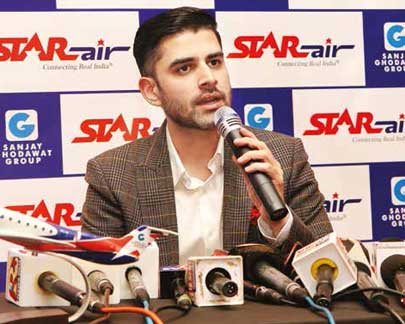
Seated at the helm of GCL, its Chairman, Sanjay Ghodawat, has led a glorious contribution to radically changing the economic landscape of India and sharpening its focus on increasing awareness of sustainability and social factors.
All the manufacturing facilities of GCL are solar-powered and generate their own electricity through co-generation. It has also a pledge to be plastic neutral and carbon neutral by 2035. With a profound opportunity to help build a more sustainable future, this endeavour isn’t just born out of an environmental basis but also includes social concern for the planet we share. Be it the pandemic or a natural calamity that hits Western and Southern India, SGG has always been at the forefront of helping humanity and uplifting society.
With innovations that power our sustainable environmental journey, every member of SGG completely aligns themselves to benefit society and create value for all our stakeholders.
CC: Talking about family governance versus corporate governance, what can you say about the management differences?
Most families are now looking at corporate governance as a basic ecology for functioning, since beyond a certain scale and size if the family firm wants to develop, it cannot continue to operate under family control. They will have to adjust to world-class corporate governance principles. The major distinction in administration is that, in family-run firms, crucial decisions are taken by the family, but in corporate governance, there are SOPs and System Sets that are process-driven rather than people-driven. This is one of the primary distinctions between family governance and corporate governance.
"The only difference between a family nurtured business and a VC or PE nurtured business is that the fear of the risk of failure is much higher in a family run business because you always worry about your own capital, expenditure"
CC: How have family business communities fostered and nurtured entrepreneurship - is it a norm rather than the exception in this sphere and how is it different from the VC/PE-centric kind that is in vogue?
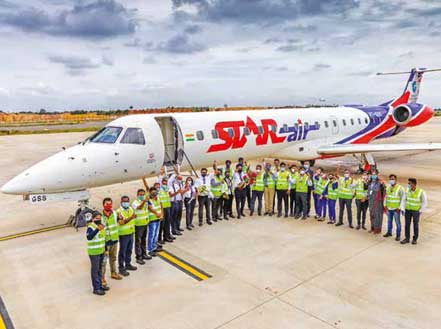
The majority of businesses in the world have been operated by families. More than 70% of worldwide businesses are still family-owned, and this is generally how entrepreneurship has developed within family-owned firms. The only difference between a family nurtured business and a VC or PE nurtured business is that the fear of the risk of failure is much higher in a family run business because you always worry about your own capital, expenditure, and the type of costs driving a particular business, whereas, capital protection is not the primary goal in a VC/PE-centric business. In a VC/PE-centric firm, the major focus is on growth, market share, or how big you can make the business. This is one of the distinctions between a PE/VC centred firm and a non-PE/VC firm.
CC: Indian businesses are predominantly family-run businesses contributing almost 70% of the GDP. How true it is that without family businesses, Indian businesses will fail?
The eco-system will collapse to a certain extent if family-run enterprises do not exist in India, especially because people still believe in trust, loyalty, and human connections more than they do in SOP’s. As a result, family enterprises have prospered more in Indian ecosystems than in global ecosystems. Also, if you look at a family tree, you’ll notice that virtually everyone returns to the family business after it reaches a certain size. Ultimately, there is a family member involved in operating the firm at every level of the organisation, which has contributed to the expansion of family businesses in India. Family-run businesses are very important for Indian GDP but we are also in the midst of witnessing a very large and quick shift of professionalising even in the Indian mid-size and large-size family businesses.
CC: What cues or insights you as the Director of SGG, could glean from the experiences of your company’s senior founder leaders?
SGG is what it is now due to my father, Mr Sanjay Ghodawat. He has nurtured and been the source of energy for SGG from its inception. The first lesson taught was to be risk-averse while simultaneously protecting family capital. As a result, you should never endanger the cash invested in family enterprises.
The second lesson learned from him was to never borrow more than 20% - 25% of our entire assets. These teachings eventually resulted in a great deal of discipline inside the organisation. As a result, even during the most difficult economic periods, such as Covid-19, we were able to not only survive but thrive in all the business.
The third lesson was the importance of paying attention to detail. Over the years, I’ve witnessed a lot of professionals and new generation family members enter the firm and focus on the macro-level issues rather than the micro ones of their businesses. This is something we must learn from the previous generation of family-owned businesses. Pay attention to how the firm is operated, focus on what has to be done, add a personal touch to each ecosystem while you develop public relations around it, and network with your colleagues, customers, and vendors, which many new age enterprises lack. This is why we see meteoric gains in some firms as well as meteoric falls in others.
However, you will never witness a large jump or a massive decline in family-run firms since these businesses are more steady and constant in their growth because everyone is closely linked to all the stakeholders.